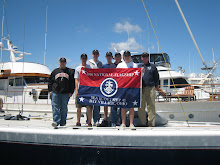Research for Interlux Waterfront Challenge turns up Project
The Ohio Clean Marina "Best Management Practices" manual has specific guidelines for the disposal of used oil. From Chapter 4 of the guidebook :-
" If you generate used oil from maintenance and repair at your marina, or from maintenance
activities of boaters who use your marina, you are subject to Ohio’s used oil regulations,
found in Ohio Administrative Code (OAC) Chapter 3745-279. Some examples of used oil
include engine oil, lubricating oil, brake fluid, transmission fluid and hydraulic fluid. Many
of the used oil regulations relate to good housekeeping practices."
Complete details of the manual can be found here, Chapter 4 details the requirements for used oil and oil filters. Page 24 states :-
"Under Ohio’s used oil regulations, you do not need to handle used oil filters as hazardous
waste if the filters are non terne-plated and have been properly drained of used oil."
Four methods are outlined for properly draining the used oil from the filters.
1)Gravity draining for 12-24 hours at engine operating temperature,
2)Crushing the oil filter,
3)Disassembly into component parts,
4)Air pressure forcing the oil out.
Method 1) is the commonly used method however most boat owners change their oil in the fall when the boats are on the hard. This means that the engines are not able to run therefore the oil filters when removed are not at operating temperature. In fact in the late fall with the cooler ambient temperatures there is no way the filters are drained as required. They therefore remain hazardous waste.
Crushing, method 2), would remove a high percentage of the oil and filter crushers are commercially available. They need a skilled operator, require compressed air to operate and cost over $1,000.00.
Methods 3) and 4) similarly are not desirable for the marina industry.
The question then is how can we help solve the problem of properly disposing of used oil filters, remember that one improperly disposed of filter could contaminate 62,000 gallons of drinking water*.
* Research from M.I.T.
Labels: Bay Village, BSA, co-ed, high school youth, Interlux, Interlux Waterfront Challenge, sailing, scouts, Sea Scouts



0 Comments:
Post a Comment
Subscribe to Post Comments [Atom]
<< Home